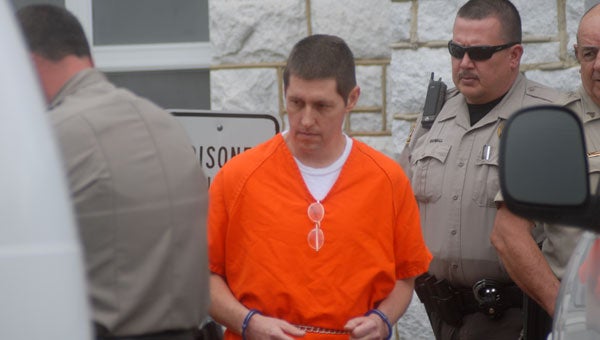More former students added in lawsuit against Acker Jr., School Board
Published 11:40 am Tuesday, December 30, 2014

More former students have been added to a lawsuit brought against former Alabaster teacher Daniel Acker Jr., pictured. (File)
By NEAL WAGNER / Managing Editor
BIRMINGHAM – Two more former students have been added to a lawsuit against a longtime Alabaster teacher who pleaded guilty to sexually abusing more than 20 girls during his teaching tenure, according to federal court documents.
In an order issued on Dec. 11, U.S. District Court Judge Virginia Emerson Hopkins agreed to accept the two additional complainants in the lawsuit, which was brought against Daniel Acker Jr. and the Shelby County Board of Education in February.
Acker was sentenced to 17 years in prison in May 2012 after he pleaded guilty to eight counts of sexually abusing underage girls during his more than 20-year teaching tenure in Alabaster.
According to the amended complaint filed in U.S. District Court, the two new anonymous plaintiffs were students in Alabaster when Acker was teaching in the city. With the addition of the two former students, there are now six plaintiffs named in the lawsuit against Acker and the county School Board.
The two new plaintiffs were added about three months after Hopkins denied a request by the original plaintiffs’ attorney to grant the case class-action status, opening it to “Any current or former female student during the time period that Dan Acker (Jr.) worked for (the) Shelby County School Board who was either injured, sexually harassed, abused or molested by Dan Acker (Jr.), or who witnessed such conduct or who was exposed to a sexually hostile education environment through Acker’s conduct.”
Hopkins denied the class-action request, claiming the victims sought in the class-action request did not have enough in common to join into a single lawsuit.
Hopkins said Acker’s victims can still file separate lawsuits “outside of the class-action format.”
“This is a grave matter, and the plaintiffs describe serious accusations against the defendants,” Hopkins wrote. “Nothing in the court’s analysis is intended to diminish these facts or to question the substantive merits of their claims.
According to court documents, more plaintiffs can be added to the lawsuit through Feb. 2, 2015. As of Dec. 30, no future court hearings had been scheduled in the lawsuit.









